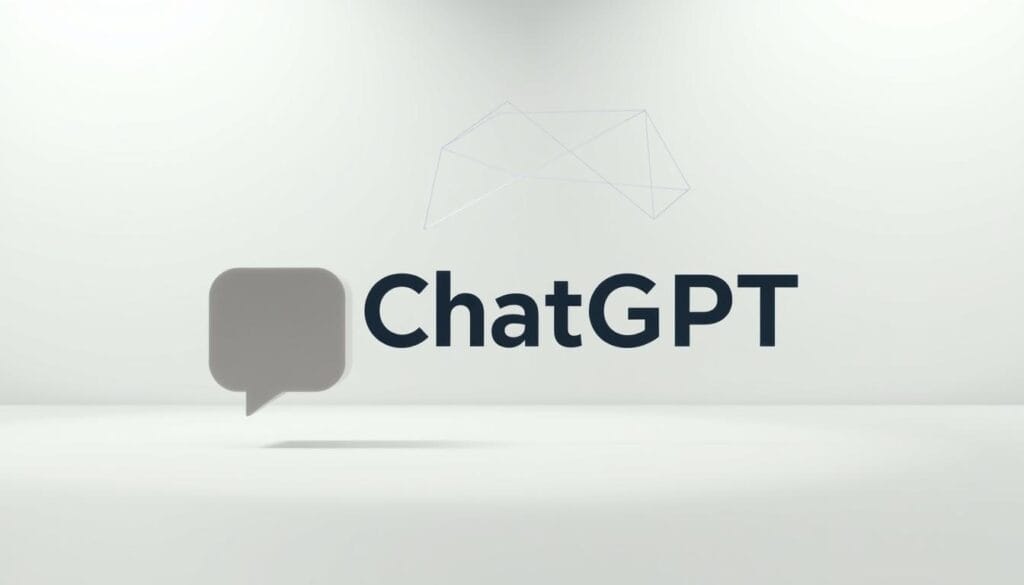AI has moved from buzzword to business weapon. One creative lead cut a podcast workflow from 23 hours to 2 hours using AI tools—an outcome that signals a strategic inflection point for any premium agency.
We address high-ticket leaders directly: this article outlines an Ultimate Guide that delivers frameworks, real examples, and step-by-step workflows you can deploy today. We promise practical systems, not vaporware.
Our aim is clear. We show how to scale content production, tighten operations, and lift marketing ROI while keeping governance and E-E-A-T front and center.
Macro Webber engineers compound systems that turn briefs into products, calls into content, and data into measurable results. Read on to get prompt kits, governance checklists, and the Growth Blueprint to lead your market — or book a consultation with us to get started.
Key Takeaways
- AI drives faster content and lower cost per asset without trading trust.
- We provide vetted workflows, real examples, and prompt kits to implement now.
- Governance and E-E-A-T are embedded in every system we recommend.
- Expect measurable gains in turnaround time, engagement, and conversion.
- Macro Webber’s Growth Blueprint offers a deployable path to premium scale.
- AI augments domain expertise—people stay in charge of quality and strategy.
Why now: The AI shift agencies can’t ignore
The AI moment is not optional; it is a strategic inflection for premium agencies. Speed and scale now drive client economics. That means higher ROI and faster decision cycles across campaigns.
The new Swiss Army knife: from time savings to scalable outputs
We see dramatic time compression. Ramli John’s podcast workflow fell from 23 to 2 hours using Riverside, SummarAIze, Notion AI, Descript, and AutoPod.
That matters: less low-value editing means more strategy, more creative iterations, and faster delivery of content and landing page assets.
Present-day context: how agencies are using AI today
Practical use cases span site builds with 10Web.io, image edits via Adobe Generative Fill, and global image localization with ControlNet and Outpainting.
Social media ideation flows from Iconosquare and HighLevel assistants. Email lifts come from smarter subject lines, send times, and personalization.
- Quantified time savings that translate to client ROI.
- Clear tool choices and governance keep quality on-brief.
- Pilot a single service line, standardize the process, then scale.
| Use case | Representative tools | Primary benefit | Typical time saved |
|---|---|---|---|
| Podcast production | Riverside, Descript, SummarAIze | Faster repurposing to episodes and clips | 23h → 2h |
| Landing page / website | 10Web.io | Rapid page builds and deployment | Days → Hours |
| Image localization | ControlNet, Generative Fill | Scalable creative variants and images | 50–70% editing time |
Defining ChatGPT for Agencies
We define the platform and its modes so teams scale predictable output. This natural-language AI handles research, drafting, analysis, and ideation — multiplying capacity when you use chatgpt with clear instructions.

How it works and what leaders deploy
Connectors inject live information from Google Drive, Notion, and SharePoint. That context speeds content creation, website copy, and email drafts with fewer review cycles.
Agent mode browses, runs competitor scans, and builds slides or spreadsheets. It reduces manual research while a human keeps strategic control.
Practical building blocks
- Custom GPTs codify brand voice, compliance, and formatting rules to avoid repeated briefs.
- Projects bundle chats, files, and guidance so campaign memory persists across articles, email series, and asset updates.
- Prompt clarity is vital: include target, audience, topic, length, examples, and constraints to cut editing loops.
| Mode | Primary role | Practical benefit |
|---|---|---|
| Connectors | Context injection | Faster drafts with live files |
| Agent mode | Automated research | Competitive analysis and asset prep |
| Custom GPTs | Brand enforcement | Consistent tone and format |
| Projects | Workspace memory | Persistent campaign knowledge |
Strategic foundations: E-E-A-T, governance, and client trust
We anchor every program in transparent standards that protect clients and scale trust. Governance turns rapid production into credible content and reliable marketing outcomes.
Experience and Expertise
We pair human subject-matter experts with AI outputs to verify facts and tone. This reduces errors and keeps brand voice intact.
SME review is mandatory for all high-impact assets and website updates.
Authoritativeness and Trustworthiness
Disclosure and approvals are non-negotiable. We use a minimal disclosure template that states AI aided drafting while humans drove research and final decisions.
“A minimal AI contribution supported by human review; accountability rests with our team.”
- Document expert credentials and cite primary sources to strengthen every article and case.
- Require approval gates and legal sign-off for sensitive topics.
- Keep audit trails: store prompts, drafts, and revision history for future reviews.
| Control point | Action | Owner |
|---|---|---|
| Fact verification | Cross-check claims against primary sources | SME |
| Ethics & disclosure | Publish AI contribution note and approval log | Compliance lead |
| Quality assurance | Bias checks and style QA before publish | Senior editor |
| Audit trail | Store drafts, prompts, and revisions | Project manager |
We embed case studies that show real customer outcomes alongside governance proof. That combination accelerates sign-offs and answers common questions from clients.
High-impact use cases: save time, improve outputs, and scale
High-impact playbooks turn single assets into multichannel campaigns with minimal extra work. Below are concise, channel-specific plays that deliver measurable results and preserve premium quality.

Speed up podcasting and repurposing
Podcast workflows convert long recordings into many assets. Use Riverside, SummarAIze, Notion AI, and Descript to transcribe, clean, and export clips.
Value: Ramli John cut production from 23 to 2 hours—more episodes, more posts, and clear cost efficiencies.
Landing page and website velocity
Build hero sections, offers, and forms in days with 10Web.io. Iterate using analytics to improve conversion and reduce time to launch.
Creative editing and image generation
Adobe Generative Fill removes or extends elements; ControlNet and Outpainting localize concepts like Brex did. This trims repetitive edits—research shows editors lose ~70% of time on those tasks.
Social media ideation and captions
Use Iconosquare or HighLevel to generate on-brand captions and post calendars. Lock tone via a brand prompt so every post matches voice and drives engagement.
Email optimization and personalization
AI refines subject lines, send times, and content blocks. Segment and personalize emails to lift opens and clicks while tracking revenue per campaign.
- Repurposing engine: route transcripts into blog drafts, carousels, and short media to expand reach without extra hires.
- Measure impact: track cost per asset, turnaround time, and engagement deltas to prioritize high-ROI channels.
- Governance: every output passes style and accuracy checks to protect brand trust as we scale production.
Operationalizing content creation: workflows that compound
Our operating model stitches inputs, people, and tools into a single catalytic process that improves outputs and shrinks time to value.
Connectors: bring Notion, Drive, and SharePoint context into drafts
We centralize assets: connectors surface briefs, brand books, and research so every draft uses approved information from day one.
Automated citations and source snippets preserve audit trails and speed reviews for website and article updates.
Agent mode: research, competitor scans, and automated ideation tasks
Agent workflows run competitive scans, compile market snapshots, and produce slides or spreadsheets. This frees strategy to focus on higher-order decisions and creative direction.
Custom GPTs: train tone, brand style, and formatting rules once
We standardize voice: a custom GPT encodes tone, structure, and formatting so creation quality is consistent across every content touchpoint.
Projects: persistent memory for campaigns, clients, and approvals
We institutionalize memory: Projects group chats, files, and instructions so campaigns avoid re-onboarding and website edits carry campaign context.
- Define tasks and SLAs; add SME and legal checkpoints.
- Use automated checklists to validate facts, links, and claims before handoff.
- Measure throughput and iterate templates to compress time and increase outputs.
- Prioritize tools that remove bottlenecks across content, images, and web builds.
“Centralize information, automate research, enforce tone, and keep campaign memory — that is how we scale reliable creation.”
From calls to content: turning meetings into assets
Live meetings are content factories — capture, process, and publish with systems that scale. We turn client conversations into measurable outputs that advance campaigns and educate customers.
Real-time transcription to summaries, posts, and scripts
We capture everything with Tactiq on Zoom, Google Meet, or Teams. Real-time transcripts feed instant summaries and highlight moments worth sharing.
Those summaries become short social media posts, blog posts, article drafts, and podcast scripts. Exports go straight to Google Docs or Notion to keep momentum and cut lag time.
Standardized prompt kits to repurpose transcripts at scale
Standardization wins speed. We build prompt kits that convert transcripts into outlines, email follow-ups, and short-form media in minutes.
- Step 1 — Capture: Tactiq records and tags speaker roles and intents.
- Step 2 — Convert: Run prompt kits to create article outlines, social posts, and video scripts.
- Step 3 — Route: Export assets to Docs, Notion, or project boards and push action items to CRM.
- Step 4 — Batch: Weekly transcript sweeps produce recurring assets and reduce overhead.
“Turn every call into an asset that advances the pipeline and educates the market.”
We measure lift by tracking asset volume per hour and downstream engagement. That proves the compounding ROI of meeting-to-content systems and lets the agency scale reliably.
Prompt engineering essentials for agency teams
Clear prompts turn vague ideas into conversion-ready content in minutes. We deliver plug-and-play frameworks that reduce revision cycles and standardize output.
Frameworks that scale writing, email, and ads
Define the audience, goal, format, length, and constraints. Include tone examples and one reference URL.
Use prompt templates to create blog posts, AIDA LinkedIn posts with tone and CTA, and multiple ad variants for A/B testing.
SEO-friendly prompts and validation
Ask for keyword-driven outlines, SEO titles, and meta descriptions. Then verify volumes and questions with external tools before final briefs.
Constraint: limit titles to 60 characters and meta to 155.
Landing pages, case studies, and UGC
- Landing page prompts: above-the-fold headline, proof points, objections, and a single CTA.
- Case study prompts: extract challenge, solution, and quantified impact from client notes.
- UGC prompts: rules, incentives, brand tags, plus image concepts.
“We define great prompts: audience, goal, format, and validation steps to protect quality.”
Examples: ask the model to generate ideas, produce subject lines under 50 characters, and repurpose meeting transcripts into short social media posts and an article outline. Use chatgpt twice to speed first drafts and lock tone before SME review.
Personalization at scale: tone, personas, and “marketing bots”
When personalization is systematic, every customer touchpoint becomes a measurable experiment. We preserve brand integrity while running rapid tests that prove impact on sales and pipeline.
Train tone once, reuse everywhere
We bottle your voice: train a custom model with brand guidelines, sample copy, and the style analysis tools used by Jasper. This creates dependable content across ads, landing pages, and email.
Persona agents to test messaging
We model personas: create persona-specific agents that simulate priority customers and surface hooks, objections, and creative ideas. ChatGPT-4 agents can run A/B iterations quickly.
We iterate fast: feed campaign outcomes back into the agents to sharpen outputs and cut guesswork.
- Orchestrate journeys: align email, page copy, and creative to persona motivations.
- Quantify wins: measure reply rates, demo requests, and cart conversions to link personalization to sales lift.
- Enable teams: provide templates so account leads deploy personalized assets without reinventing work.
“Tone-locked prompts prevent drift while allowing fresh ideas that fit premium positioning.”
Quality control: limitations, ethics, and risk management
We set rigid standards so speed never erodes trust. Every asset must pass verification, bias checks, and client approvals before it reaches live channels. That protects brand value and guarantees predictable results.
Knowledge cutoffs and hallucinations are real risks. We assume gaps in recent information and require subject-matter expert review on regulated or technical topics.
Knowledge gaps, validation, and credible sources
We cross-check claims against primary sources and document citations inside the content and on the website. Verify SEO data and hashtags externally to avoid errors.
Bias checks, approvals, and disclosure
We scan language for unintended bias and adjust prompts to uphold inclusion. Structured client sign-offs reduce legal and reputational risk.
“A minimal AI contribution supported by human review; accountability rests with our team.”
| Control point | Action | Owner | Checks |
|---|---|---|---|
| Fact validation | Cross-check against authoritative sources | SME | Links, citations |
| Bias audit | Language scan and prompt adjust | Senior editor | Inclusive language report |
| Rendering test | Preview across devices | QA engineer | Email and website checks |
| Disclosure | Publish AI note when material | Project lead | Client-approved text |
We monitor performance and tie results to QA compliance. That proves the business case and helps us get better at governance.
Proving ROI: KPIs, benchmarks, and case-style reporting
We measure change with clear financial metrics that executives trust. Tie every AI-driven efficiency to revenue, pipeline, or cost avoided.
Time, cost, engagement, and conversion metrics
We define key performance indicators that map to business outcomes. Track time saved per asset, cost per asset, engagement rates, conversion lift, and sales velocity.
- Establish pre-AI baselines across channels.
- Run controlled tests to isolate tool impact from offer or seasonality.
- Annotate case studies and examples with screenshots and raw numbers.
Before / after comparisons that executives read
Present concise, side-by-side comparisons for social posts, emails, and landing pages. Show lift in opens, clicks, and conversions and convert that lift into pipeline and closed sales.
| Channel | Baseline | After AI |
|---|---|---|
| Emails | Open 18% / CVR 1.2% | Open 26% / CVR 2.0% |
| Landing page | Conv 3.0% | Conv 4.5% |
| Social post | Eng 0.6% | Eng 1.1% |
Attribution matters. Distinguish tool-driven gains from creative or offer changes. Validate SEO and hashtags externally, and document every test.
“Translate conversion lifts into pipeline and closed-won sales so leaders see the value.”
Standardize monthly summaries, quarterly deep-dives, and annual case studies. That cadence drives alignment and proves the marketing and agency investment with hard results and repeatable ideas.
Conclusion
, The smart use of tools like Riverside and 10Web.io shows clear ways use AI to turn single tasks into repeatable revenue channels.
We recap the advantage: AI converts meetings into content, compresses production time, and scales quality across social media, email, images, and website experiences. With governance and E‑E‑A‑T baked into every process, content becomes a competitive moat grounded in accuracy and brand truth.
Leaders convert use cases into systems that compound month after month. Start focused, validate quickly, expand fast—our frameworks remove guesswork and save time from day one.
Act now: unlock Macro Webber’s Growth Blueprint or book a consultation this quarter to secure priority implementation and first‑mover gains. Limited onboarding spots keep quality high; agency owners ready to get better should reserve a slot today.
